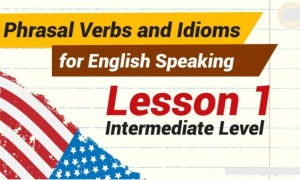Hi guys, today we are going to learn everything there is to know about direct and indirect speech.
大家好,今天我们将学习所有关于直接和间接言语的知识。
My aim for this article is to provide you with a great understanding of the two speech acts, when you should use them, what they look like and how they differ from one another.
这篇文章的目的是让你对这两种言语行为有一个很好的理解,当你应该使用它们的时候,它们是什么样子的,它们之间有什么不同。
I will provide you with an indirect speech formula, highlight all the rules and differences between direct and indirect speech, such as the change in tense, pronoun and overall sentence structure.
我将为您提供一个间接引语公式,突出直接引语和间接引语之间的所有规则和区别,如时态、代词和整体句子结构的变化。
I will also show you how to make interrogative and imperative sentences in the indirect speech. I promise to make this as clear and simple as possible. Let’s get started.
我还将教你如何在间接引语中使用疑问句和祈使句。我保证尽可能清楚和简单。我们开始吧。
1. Speech Acts
1.言语行为
So, as some of you may know, direct speech and indirect speech, are speech acts. They are used to pass on information or something spoken by one person, to another person.Pretend you are in a restaurant with your friend Kim, you are having lunch together. Before you order, she tells you “I am so hungry” and she orders a huge meal.The next day you are at home with your family, you want to tell them about your time spent with Kim yesterday.
所以,你们可能知道,直接言语和间接言语都是言语行为。它们被用来把一个人的信息或说话的东西传递给另一个人。假装你和你的朋友金在餐馆里,你正在一起吃午饭。在你点菜之前,她会告诉你“我太饿了”,然后她会点一顿大餐。第二天你和家人在家,你想告诉他们你昨天和金姆在一起的时间。
You have two options, you can say:
你有两个选择,你可以说:
Kim said, “I am so hungry” (direct speech)
金姆说:“我太饿了”(直言)
Kim said that she was so hungry. (indirect speech)
金姆说她太饿了。(间接言语)
Above are examples of how we can use direct speech or indirect speech to transmit what one person said, to another person. Let’s take a step back, at the beginning of this article I said that direct and indirect speech are speech acts. So, what is a speech act? We use language to achieve specific communicative acts, such as asking for a menu at a restaurant or complaining about the food in a restaurant. We also can use speech acts to greet, threaten or invite somebody and to promise or refuse something to somebody and so on.
以上是我们如何使用直接或间接言语将一个人所说的传达给另一个人的例子。让我们退一步,在本文的开头,我说过直接和间接言语都是言语行为。那么,什么是言语行为?我们使用语言来实现特定的交际行为,比如在餐厅要求菜单或抱怨餐厅的食物。我们也可以用言语行为来问候、威胁或邀请某人,向某人许诺或拒绝某事等等。
Below is a list of examples of different types of speech acts;
下面是不同类型言语行为的例子列表;
I ask to visit my sister.
我请求去看望我妹妹。
I promise to visit my sister.
我答应去看望我妹妹。
I refuse to visit my sister.
我拒绝去看望我妹妹。
I threaten to visit my sister.
我威胁说要去看望我妹妹。
I order my brother to visit my sister.
我命令我弟弟去看望我妹妹。
How does this differ from other acts, such as a physical act or a mental act?
这与其他行为,如身体行为或精神行为有何不同?
Here is an example of a mental act:
下
面是一个心理行为的例子:
I think about visiting my sister.
我想去看望我妹妹。
And a physical act:
一个身体动作:
I visit my sister.
我去看望我妹妹。
Can you see how each sentence is talking about the same thing but in a different way with different possible outcomes? Just because you are thinking about visiting your sister, doesn’t mean you actually physically travel and visit your sister. Or you may order your brother to visit your sister but that doesn’t mean he will listen to you and actually visit her. I know my brother never does anything I ever ask him to do… We can divide speech acts into two groups; direct speech and indirect speech. As demonstrated above, direct and indirect speech help us pass on information from one person or time to another. But what is the difference?
你能看到每一句话是如何谈论同一件事,但在不同的方式,不同的可能结果?仅仅因为你想去看望你的妹妹,并不意味着你真的要去旅行和看望你的妹妹。或者你可以命令你弟弟去看望你妹妹,但这并不意味着他会听你的话并真正看望她。我知道我哥哥从来没有做过我让他做的任何事……我们可以把言语行为分为两类:直接言语和间接言语。如上所述,直接和间接言语帮助我们将信息从一个人或时间传递给另一个人。但有什么区别呢?
2. Direct Speech Definition
2.直接引语的定义
Direct speech includes exactly what the person said, the spoken phrase is placed between quotation marks and there is no need to change the tense or the pronoun in the sentence structure.
直接引语包括人所说的话,口语短语放在引号之间,不需要改变句子结构中的时态或代词。
Kim said, “I am hungry”
金说:“我饿了”
The waiter said, “The food will be ready soon.”
服务员说:“菜很快就好了。”
Direct speech, narrates a situation, it recounts exactly what happened and was said at the time. The sentence structure is very simple as you don’t have to change the tense or any pronoun that may be used, just don’t forget the comma before or after ‘said’ and the quotation marks. Below are examples of direct speech.
直言不讳,叙述一种情况,它准确地叙述了当时发生的事情和所说的话。句子结构非常简单,因为你不必改变时态或任何可能使用的代词,只是不要忘记“said”前后的逗号和引号。下面是直接引语的例子。
They said, “We were watching a movie last night”
他们说,“我们昨晚在看电影”
“I will visit America next year,” she said.
她说:“我明年将访问美国。
3. The Indirect Speech Definition and Formula
3.间接言语的定义与公式
Unfortunately, indirect speech isn’t as simple as direct speech, but once you understand the sentence structure and the indirect speech rules, it is straight forward and a great way to show off your English language skills. So let’s get started, first of all, we don’t use quotation marks with indirect speech, instead we include ‘that’ before retelling what has been said.
不幸的是,间接引语并不像直接引语那么简单,但是一旦你了解了句子结构和间接引语的规则,它就直截了当地展现了你的英语语言能力。所以让我们开始吧,首先,我们不在间接引语中使用引号,而是在复述之前加上“that”。
Look at the direct speech example again:
再看一下直接引语的例子:
Kim said, “I am hungry”
金说:“我饿了”
Now look at the example using indirect speech:
现在看看使用间接引语的例子:
Kim said that she was hungry.
金姆说她饿了。
Did you notice where ‘that’ is located and how the quotation marks are not required? What else is different?
你注意到“that”的位置了吗?它是如何不需要引号的?还有什么不同?
4. The Tense Change in Indirect Speech
4.间接引语的时态变化
Take a look at the examples of direct and indirect speech below:
请看下面的直接和间接言语例子:
She said, “I study English every day.”
她说:“我每天都学英语。”
She said that she studied every day.
她说她每天都学习。
Can you see what happens to the tense with the indirect sentence structure? Yes, the present tense is changed to the past tense. This is another adjustment made when using indirect speech; sometimes we have to change the tense. This can cause confusion for many language learners but I will provide you with a helpful tense chart that demonstrates when you need to change the tense and which tense switches with another tense.
你能看到间接句结构的时态发生了什么变化吗?是的,现在时改成过去时。这是使用间接引语时的另一个调整;有时我们必须改变时态。这可能会给许多语言学习者带来困惑,但我会给你提供一个有用的时态表,演示你何时需要改变时态,以及哪些时态与另一个时态切换。
The Present Tenses
现在时态
The Past Tenses
过去时态
The Future Tenses
将来时态
5. Direct Speech Indirect Speech (Present)
直接引语间接引语(现在时)
The present simple changes to the past simple.
一般现在时变为一般过去时
She said, “I play football”
她说,“我踢足球”
She said that she played football.
她说她踢足球。
The present continuous changes to the past continuous.
现在进行时变为过去进行时
John said, “he is reading about World War II in school”
约翰说:“他正在学校里读二战的书”
John said that he was reading about World War II in school.
约翰说他在学校里读到了关于第二次世界大战的书。
The present perfect changes to the past perfect.
现在完成时变为过去完成时
I said, “he has started the movie”
我说,“他已经开始拍电影了”
I said that he had started the movie.
我说他已经开始了这部电影。
The present perfect continuous changes into the past perfect continuous.
现在完成进行时变为过去完成进行时
He said, “it has been raining all day”
他说,“下了一整天的雨”
He said that it had been raining all day.
他说下了一整天的雨。
6. Direct Speech Indirect Speech (Past)
直接引语与间接引语(过去时态)
The past simple changes to the past perfect.
一般过去时变为过去完成时
Kate said, “I cooked dinner”
凯特说,“我做了晚饭”
Kate said that she had cooked dinner.
凯特说她做了晚饭。
The past continuous doesn’t change.
过去的连续不变。
She said, “Jenny had parked the car”
她说,“珍妮把车停好了”
She said that Jenny had parked the car.
她说珍妮把车停好了。
Past perfect doesn’t change.
过去完成时不用变。
They said, “we had eaten in that restaurant before”
他们说,“我们以前在那家餐馆吃过饭”
They said that they had eaten in that restaurant before.
他们说他们以前在那家餐馆吃过饭。
7. Direct Speech Indirect Speech (Future)
直接引语间接引语(将来时)
Future simple, “will” changes to “would”
未来简单,“意志”变为“意志”
She said, “I will buy food for dinner”
她说,“我会买吃的”
She said that she would buy food for dinner.
她说她会买晚饭吃的。
Did you notice how all the present tenses were changed into one of the past tenses?Also look at how the past continuous tense and the past perfect tense don’t change when you are using the indirect sentence structure, they remain the same. Try to memorise these tense rules, they will help you greatly.
你注意到现在的时态都变成过去的时态了吗?再看看过去进行时态和过去完成时态在使用间接句结构时是如何保持不变的。试着记住这些紧张的规则,它们会对你有很大的帮助。
8. Modal Auxiliary Verbs in Indirect Speech
8.间接引语中的情态助动词
Can you remember what a modal verb is in English or what its function is?
你还记得英语中的情态动词是什么吗?它的功能是什么?
Modals are used to show modality. This means they provide extra information when used in a sentence, they may show a persons ability, obligation, possibility or permission for example.
情态动词用来表示情态动词。这意味着它们在句子中使用时提供了额外的信息,例如,它们可以显示一个人的能力、义务、可能性或许可。
With indirect speech you must change the modal verbs; can, may and must from the present tense to the past tense. Whereas the modals; would, could, should, ought to and might do not change when using the indirect speech.
使用间接引语时,你必须改变情态动词;可以、可以和必须从现在时改为过去时。而情态动词在使用间接引语时会、会、应该、应该和可能不会发生变化。
9. Modal Verbs that Change in Indirect Speech
间接引语中的情态动词变化
Let’s look at some examples to see how modal verbs work with indirect speech.
让我们看一些例子,看看情态动词是如何与间接引语一起工作的。
She said, “I can speak five languages.”
她说:“我会说五种语言。”
She said that she could speak five languages.
她说她会说五种语言。
She said, “I can’t speak a foreign language”
她说,“我不会说外语”
She said that she could not speak a foreign language.
她说她不会说外语。
He said, “I may need time off work”
他说,“我可能需要休息”
He said that he might need time off work.
他说他可能需要休息。
The teenagers said, “We must be home before 10 P.M.”
孩子们说:“我们必须在晚上10点以前到家。”
The teenagers said that they had to be home before 10 P.M.
青少年们说他们必须在晚上10点以前到家。
The examples above show us that the modal verb can changes to could, may changes might and must changes to had to.
上面的例子说明情态动词可以变为可以,可以变为可以,也必须变为不得不。
10. Modal Verbs that Don’t Change in Indirect Speech
间接引语中情态动词不变
As I said other modals don’t change when using indirect speech but you may still have to change the pronoun, the word order or the adverb of time. Read the examples below to see what I mean.
正如我所说,其他情态动词在使用间接引语时不会改变,但你可能仍然需要改变代词、词序或时间副词。阅读下面的例子来了解我的意思。
She said, “I would travel the world if I had enough money”
她说,“如果我有足够的钱,我会周游世界”
She said that she would travel the world if she had enough money.
她说如果她有足够的钱,她将周游世界。
The students said, “we should study more before our exams”
学生们说:“考试前我们应该多学习”
The students said they should study more before their exams.
学生们说他们应该在考试前多学习。
Future continuous, “will be” changes to “would be”
将来进行时,“will be”变为“would be”
They said, “there will be a party next weekend”
他们说,“下周末有个聚会”
They said that there would be a part next weekend.
他们说下周末有一部分。
Future perfect, “will have” changes to “would have”
将来完成时,将“will have”变为“would have”
I said, “I will have to study more for my exams”
我说,“为了考试我得多学习”
I said that I would have to study more for my exams.
我说为了考试我得多学习。
He said, “I might go to the concert”
他说,“我可能去听音乐会”
He said that he might go to the concert.
他说他可能去听音乐会。
Ryan said, “I could go to the shop later.”
瑞安说:“我可以晚些去商店。”
Ryan said that he could go to the shop later.
瑞安说他可以晚点去商店。
Sarah said, “I ought to buy a new car”
莎拉说,“我应该买一辆新车”
Sarah said that she ought to buy a new car.
莎拉说她应该买一辆新车。
11. Pronouns in Indirect Speech
间接引语中的代词
Another important rule to note is the change in pronoun. Did you wonder why in some of the examples above the pronoun changed? For example:
另一个需要注意的重要规则是代词的变化。你想知道为什么在上面的一些例子中代词变了吗?例如:
She said, “I play football”
她说,“我踢足球”
She said that she played football.
她说她踢足球。
She said, “I will buy food for dinner”
她说,“我会买吃的”
She said that she would buy food for dinner.
她说她会买晚饭吃的。
The subject or the pronoun of the second part of the sentence, the indirect speech, is the pronoun that must be changed. We have to look at the first part of the sentence, see what verb or pronoun is being used and change the pronoun, in the second part of the sentence, in accordance to this. For example:
句子第二部分的主语或代词,即间接引语,是必须改变的代词。我们必须看句子的第一部分,看正在使用什么动词或代词,并根据这个改变句子的第二部分中的代词。例如:
She said, “I am scared of spiders”
她说,“我害怕蜘蛛”
She said that she was scared of spiders.
她说她害怕蜘蛛。
They said, “we want dinner”
他们说,“我们要晚餐”
They said that they wanted dinner.
他们说要吃晚饭。
Don’t forget to change the verb in accordance to the pronoun, I am scared – She is scared.
别忘了根据代词改变动词,我很害怕——她很害怕。
12. Adverbs of Time and Indirect Speech
12.时间副词与间接引语
As we noted above, the tense must change when using the indirect speech. Therefore the aspect of time changes too, this means we must change the adverbs of time when using indirect speech.
如上所述,使用间接引语时时态必须改变。因此,时间方面也会发生变化,这就意味着我们在使用间接引语时必须改变时间副词。
Tim said, “I am going to the match today”
蒂姆说:“我今天要去看比赛”
Tim said that he was going to the match that day
蒂姆说他那天要去看比赛
They said, “we are going to Spain next year”
他们说,“我们明年要去西班牙”
They said that they were going to Spain in the following year.
他们说他们明年要去西班牙。
This may seem a bit confusing so to make it easier for you, I have made a list of the possible changes to the adverbs, from one time to another time. Now can be changed to then.
这可能看起来有点混乱,所以为了让你更容易,我列出了副词从一个时间到另一个时间的可能变化。现在可以改成那时。
Today can be changed to yesterday/that day.
今天可以改成昨天/那天。
Tomorrow can be changed to today/the next day.
明天可以改为今天/第二天。
Yesterday can be changed to the previous day/Thursday.
昨天可以改为前一天/星期四。
Next week/month/year can be changed to next week/month/year.
下一周/月/年可以更改为下一周/月/年。
Last week/month/year can be changed to the previous week/month/year.
上一周/月/年可以更改为上一周/月/年。
13. Questions in Indirect Speech
间接引语中的问题
What happens to questions when we want to change it into indirect speech? How can we use indirect speech for an interrogative sentence? Let’s have a look and find out. In English there are two types of questions, yes or no questions and open ended questions:
当我们想把问题变成间接言语时,会发生什么情况?我们怎样才能用间接引语作疑问句呢?让我们看一看,找出答案。英语中有两类问题,是或否问题和开放式问题:
Yes or no question: Are you hungry?
一般疑问句:你饿了吗?
Response: Yes
回答:是的
Open-ended question: What type of food do you like?
开放式问题:你喜欢什么样的食物?
Response: I like Italian food.
回答:我喜欢意大利菜。
You can’t respond to this question with a simple yes or no as it is not answering the question. An open-ended question requires more information.
你不能用简单的“是”或“否”来回答这个问题,因为它没有回答这个问题。开放式问题需要更多信息。
14. Yes/No Questions in Indirect Speech
间接引语中的是/否问题
How do yes/no questions look when changed into the indirect speech?
把“是/否”问题改成间接引语怎么看?
She said, “Are you hungry?”
她说:“你饿了吗?”
She asked me if I was hungry.
她问我是否饿了。
Again, quotation marks are not required, the tense must be changed and the pronoun may change. Did you notice how when using the indirect speech in an interrogative sentence we don’t use ‘that’ we use ‘if’?
同样,引号不是必需的,时态必须改变,代词也可能改变。你注意到在疑问句中使用间接引语时我们不使用“that”吗?我们使用“if”?
I said that I was happy.
我说我很开心。
I asked her if she was happy.
我问她是否高兴。
Also note that the question mark is not required in the indirect interrogative sentence either.
还要注意,间接疑问句中也不需要问号。
15. Open-Ended Questions in Indirect Speech
间接引语中的开放性问题
What about open-ended questions, the questions that require a more complex response?
开放式问题,那些需要更复杂回答的问题呢?
Let’s look at an example of an open-ended question in indirect speech to see how they look.
让我们看一个间接引语中开放式问题的例子,看看它们看起来如何。
I said to my mum,“why are you smiling?”
我对妈妈说:“你为什么笑?”
I asked my mum why she was smiling.
我问妈妈为什么笑。
She asked him,“how old are you?”
她问他:“你多大了?”
She asked him how old he was.
她问他多大了。
What are the differences in these sentences? First of all the tense changes, in the first example the present continuous changes to the past continuous; are smiling – was smiling. The second example, the simple present changes to the simple past; you are – he was. The pronouns also change: you – she and you – he. ‘If’ isn’t required with open-ended questions but there is a change in the word order, did you see that? The indirect speech reverts the interrogative sentence structure back into the affirmative sentence structure. I will demonstrate this now with some examples:
这些句子有什么不同?首先是时态的变化,在第一个例子中现在的不断变化到过去的不断变化;都在笑——都在笑。第二个例子,简单的现在变成了简单的过去;你是——他是。代词也会改变:你-她和你-他。开放式问题不需要“If”,但词序有变化,你看到了吗?间接引语将疑问句结构还原为肯定句结构。我现在将用一些例子来演示这一点:
I said to my mum,“why are you smiling?”
我对妈妈说:“你为什么笑?”
I asked my mum why she was smiling. (I asked my mum why was she smiling.)
我问妈妈为什么笑。(我问妈妈为什么笑。)
She asked him,“how old are you?”
她问他:“你多大了?”
She asked him how old he was. (She asked him how old was he.)
她问他多大了。(她问他多大了。)
Tom said to Sam, “How are you?”
汤姆对萨姆说:“你好吗?”
Tom asked Sam how he was. (Tom asked Sam how was he.)
汤姆问萨姆他怎么样。(汤姆问萨姆他怎么样。)
16. Imperative Sentences in Indirect Speech
间接引语中的祈使句
Now that we know how to adjust interrogative sentences, lets look at how we can adjust imperative sentences into indirect speech. Before we do that, can you recall what an imperative sentence is? What its function is? What it looks like? We use imperative sentences to give commands, such as telling your brother to visit your sister or asking for the menu in a restaurant. These sentences can end with a full stop or an exclamation mark.
现在我们知道如何调整疑问句,让我们看看如何调整祈使句成间接言语。在此之前,你能回忆一下什么是祈使句吗?它的功能是什么?它看起来像什么?我们用祈使句来发出命令,比如告诉你的兄弟去看望你的妹妹,或者在餐馆里要菜单。这些句子可以以句号或感叹号结尾。
So how does an imperative sentence look in the indirect speech?
那么祈使句在间接引语中是什么样子的呢?
She said to the waiter, “please give me a menu”
她对侍者说:“请给我一份菜单。”
She requested the waiter to give her a menu.
她请服务员给她一份菜单。
The teacher said to the students, “be quiet”
老师对学生们说:“安静点”
The teacher ordered the students to be quiet.
老师命令学生们安静。
His mum said to him, “you need to study more”
他妈妈对他说:“你需要多学习”
His mum advised him to study more.
他妈妈建议他多学习。
He said, “Let’s join the English language society in college.”
他说:“让我们在大学里加入英语语言协会吧。”
He suggested joining the English language society in college.
他建议在大学里加入英语语言协会。
Don’t forget about the negative request:
不要忘记否定的需求:
The teacher said, “Please don’t talk in class”
老师说:“请不要在课堂上讲话”
The teacher said not the talk in class
老师在课堂上说不要讲话
The sign in the restaurant said, “No smoking”
餐厅的牌子上写着“禁止吸烟”
The sign in the restaurant asked the customers not the smoke.
餐馆的招牌要求顾客不要吸烟。
What about interrogative sentences that end with an exclamation mark?
以感叹号结尾的疑问句呢?
She said, “Yes! I got an A in my exam.”
她说:“是的!我考试得了A。”
She exclaimed with amazement that she had gotten an A in her exam.
她惊奇地惊呼她考试得了A。
They said, “Oh no! We lost our car keys.
他们说:“哦不!我们的车钥匙丢了。
They exclaimed with disbelief that they had lost their car keys.
他们不敢相信自己把车钥匙丢了。
17. Mixed Type Sentences in Indirect Speech
间接引语中的混合句
Finally, we will look at what happens to a mixed type sentence structure in direct and indirect speech. A mixed type sentence structure can be a statement or a question that contains more than one clause and more than one tense. If we look at the mixed type phrase below, you will see that there are two parts to the phrase.
最后,我们将研究直接和间接言语中的混合型句子结构会发生什么。混合型句子结构可以是包含多个子句和多个时态的语句或问题。如果我们看一下下面的混合型短语,你会发现这个短语有两部分。
You have a lot of work to do. Can I help you?
你有很多工作要做。我能帮助你吗?
Can you see how the example above is divided into two separate sections? The first section is a statement; you have a lot of work to do and the next sections is a questions can I help you? If we want put this sentence in direct speech we can simply quote what was said, below is an example of a mixed type sentence in direct speech.
你能看到上面的例子是如何分成两个独立的部分的吗?第一部分是一个陈述;你有很多工作要做,下一部分是一个问题我能帮你吗?如果我们想把这个句子放在直接引语中,我们可以简单地引用所说的话,下面是一个直接引语中混合型句子的例子。
He said, “You have a lot of work to do. Can I help you?”
他说,“你有很多工作要做。我能帮助你吗?”
There is no need to change the tense or a pronoun here, simply narrate what was said. What do you think happens with indirect speech? We know from the indirect speech formula that we usually change the tense and the pronoun, we also know that questions in indirect speech require changes too. Mixed type sentences can be divided into sections; statements and questions for example. With indirect speech we must introduce each section with an appropriate verb, this means the statement section should be introduced by a particular verb such as tell or say whereas the question section needs to introduced by verbs like ask or wonder.
这里不需要改变时态或代词,只需叙述所说的话。你认为间接引语会怎么样?我们从间接引语公式中知道,我们通常会改变时态和代词,我们也知道间接引语中的疑问句也需要改变。混合型句子可以分成几个部分,例如陈述句和疑问句。对于间接引语,我们必须用一个合适的动词来介绍每一部分,这意味着陈述部分应该由一个特定的动词如tell或say来介绍,而问题部分则需要由ask或wonder等动词来介绍。
Let’s use the example above and see how it changes in the indirect speech.
让我们用上面的例子看看它在间接引语中是如何变化的。
He said that Clare had a lot of work to do and asked if he could help her.
他说克莱尔有很多工作要做,问他能不能帮她。
Can you see how the two introductory verbs say and ask separate the two sections? Said introduces the statement and asked introduces the question. That and if are used in the same way they are used with regular sentence structures in indirect speech. The tense and aspect of time also follows the same rule, they usually have to be changed into the past. Look at the examples below, keeping in mind the various sections, introductory verbs, pronouns, tense and overall word order.
你能看到这两个导言动词是怎么说的吗?赛义德介绍了声明并被问到了介绍问题。如果以同样的方式使用,它们在间接引语中与常规句子结构一起使用。时间的时态和体也遵循同样的规则,它们通常都必须转换成过去式。看下面的例子,记住各个部分,介绍性动词,代词,时态和整体词序。
She said, “I am so hungry. Can I have something to eat?”
她说:“我太饿了。我能吃点东西吗?”
She complained that she was hungry and asked if she could have something to eat.
她抱怨说她饿了,问她能不能吃点东西。
Emmet said, “Do you like learning English? I love it!”
埃米特说:“你喜欢学英语吗?我喜欢!”
Emmet asked if she liked learning English and exclaimed that he loved it.
埃米特问她是否喜欢学英语,并大声说他喜欢。
So there you go! I have included all you need to know about direct and indirect speech. How did you find it? You should now be able to point out differences between the two speech acts.
所以你来了!我已经包括了所有你需要知道的关于直接和间接言语。你怎么找到的?你现在应该能够指出这两种言语行为之间的区别了。
That the direct speech narrates exactly what has been said and that when using the indirect speech you must make a few changes. For example, there may be change in tense, a change in pronoun or a change in time. What else is different? Remember, we don’t use quotation marks when using indirect speech, we also don’t need the comma before the narrated phrase. Keep in mind that when an interrogative sentence is in the indirect speech, the word order switches from the interrogative sentence structure to the affirmative sentence structure. I have given an example below to remind you.
直接引语准确地叙述了所说的话,当使用间接引语时,你必须做一些改变。例如,时态的变化、代词的变化或时间的变化。还有什么不同?记住,我们在使用间接引语时不使用引号,也不需要在叙述短语前加逗号。记住,当疑问句在间接引语中时,语序从疑问句结构转换为肯定句结构。我举了一个例子来提醒你。
She asked, “Is it raining?”
她问:“下雨了吗?”
She asked if it was raining.
她问是不是在下雨。
Do you see how the verb ‘to be’ moves from before the pronoun to after the pronoun? When writing an interrogative sentence, don’t forget to put ‘if’ before the narrated phrase! I hope you found this article helpful and the two speech acts are a lot clearer for you now. Remember, the indirect speech is telling you what was said before, so most of the time you will have to change the verb tense and pronoun, but use the list of verb tenses I gave you as a guide, it really does help!
你看到动词“to be”是如何从代词前移到代词后的吗?在写疑问句时,不要忘记在叙述的短语前加上“if”!我希望你觉得这篇文章对你有帮助,现在这两个言语行为对你来说更清楚了。记住,间接引语是告诉你之前所说的话,所以大多数时候你必须改变动词时态和代词,但是用我给你的动词时态列表作为指导,它确实有帮助!
Direct and Indirect Speech Exercises
直接引语与间接引语的练习
Here are exercises to help you practice what you have learnt about direct and indirect speech. I have also provided you with the answers. When completing the worksheet keep in mind the parts of the sentence you might need to change such as the tense, the pronoun, the adverb of time and the overall word order. Good luck!
这里有一些练习可以帮助你练习你所学的直接和间接言语。我也给了你答案。完成工作表时,请记住句子中可能需要更改的部分,如时态、代词、时间副词和整体词序。祝你好运!
1. Complete the sentences below:
完成下列句型:
1. She said, “I am so happy!”
她说:“我太高兴了!”
She said ___________________________________________.
2. Tom said, “I cooked dinner last night”
汤姆说,“我昨晚做了晚饭”
Tom said ___________________________________________.
3. They said, “We are going to the football match”
他们说,“我们要去看足球赛”
They said ___________________________________________.
4.He said, “Kevin is training for the marathon”
他说,“凯文正在为马拉松训练”
He said _____________________________________________.
5. I said, “the shop closes at 7 P.M. tonight”
我说,“商店今晚7点关门”
I said _______________________________________________.
6. The teacher said, “You will have a test tomorrow”
老师说:“你明天要考试”
The teacher said ______________________________________.
7. “She had forgotten her homework,” she said.
“她忘了带作业,”她说。
She said ___________________________________________.
8. “It has been raining all day, today,” he said.
“今天下了一整天的雨,”他说。
He said ____________________________________________.
2. Complete the sentences using modal verbs:
用情态动词完成句子:
1. Jane said, “I can’t go to the party tonight”
简说,“我今晚不能去参加聚会”
Jane said ___________________________________________.
2. He said, “I may move to Canada next year”
他说,“我明年可能搬到加拿大去”
He said ____________________________________________.
3. They said, “We should go to the cinema next week”
他们说,“我们下周应该去看电影”
They said ___________________________________________.
4. She said, “Kate ought to go to the doctor tomorrow”
她说,“凯特明天应该去看医生”
She said ___________________________________________.
5. “We can drive to the exam centre together,” the students said.
学生们说:“我们可以一起开车去考试中心。”。
The students said ____________________________________.
6. Gerry said, “I would go to the theatre if I had money”
格里说:“如果我有钱,我就去看戏。”
Gerry said ___________________________________________.
7. “We ought to clean the house before our parents come home,” they said.
他们说:“我们应该在父母回家之前打扫房子。”
They said ___________________________________________.
8. He said, “I must check how much the tickets cost”
他说,“我得查一下票的价格”
He said ___________________________________________.
3. Change the questions below from direct speech to indirect speech:
将下列问题从直接引语改为间接引语:
1. She said to her daughter, “Are you coming home for dinner?”
她对女儿说:“你回家吃饭吗?”
___________________________________________________.
2. I said, “How old are you?”
我说,“你多大了?”
___________________________________________________.
3. They asked each other, “What will we do this summer?”
他们问对方:“今年夏天我们要做什么?”
___________________________________________________.
4. He said to Kim, “Why are you shouting?”
他对金姆说:“你为什么大喊大叫?”
___________________________________________________.
5. I said to them, “Is the movie over?”
我对他们说:“电影结束了吗?”
___________________________________________________.
6. He asked her, “Are you ok?”
他问她,“你没事吧?”
___________________________________________________.
7. I asked, “When is your birthday?”
我问,“你什么时候生日?”
___________________________________________________.
8. The teacher said, “Are you ready for the test?”
老师说:“你准备好考试了吗?”
___________________________________________________.
Answers:
答案:
1. Complete the sentences below:
完成下列句子:
1. She said, “I am so happy!” She exclaimed that she was so happy.
她说:“我太高兴了!她大声说她很高兴。
2. Tom said, “I cooked dinner last night”Tom complained that he had cooked dinner the night before.
汤姆说,“我昨晚做了晚饭”汤姆抱怨说他前一天晚上做了晚饭。
3. They said, “We are going to the football match”They said that they were going to the football match.
他们说,“我们要去看足球赛”他们说他们要去看足球赛。
4. He said, “Kevin is training for the marathon”He said that Kevin was training for the marathon.
他说,“凯文正在为马拉松训练”他说凯文正在为马拉松训练。
5. I said, “the shop closes at 7 P.M. tonight”I said that the shop closed at 7 P.M. last night.
我说,“商店今晚7点关门”,我说商店昨晚7点关门。
6. The teacher said, “You will have a test tomorrow”The teacher told me that I would have a test the next day.
老师说,“你明天要考试”老师告诉我第二天我要考试。
7. “She had forgotten her homework,” she said.She said that she had forgotten her homework.
“她忘了她的家庭作业,”她说。她说她忘了她的家庭作业。
8. “It has been raining all day, today,” he said.He commented that is had been raining all day, that day.
“今天下了一整天的雨,”他说。他说那天下了一整天的雨。
2. Complete the sentences using modal verbs:
用情态动词完成句子:
1. Jane said, “I can’t go to the party tonight”Jane said that she couldn’t go to the party last night.
简说:“我今晚不能去参加聚会。”简说她昨晚不能去参加聚会。
2. He said, “I may move to Canada next year”He said that he might move to Canada next year.
他说,“我明年可能搬到加拿大去”,他说他明年可能搬到加拿大去。
3. They said, “We should go to the cinema next week”They said that they should go to the cinema next week.
他们说,“我们下周应该去看电影”他们说他们下周应该去看电影。
4. She said, “Kate ought to go to the doctor tomorrow”She said that Kate ought to go to the doctor today.
她说:“凯特明天应该去看医生。”她说凯特今天应该去看医生。
5. “We can drive to the exam centre together,” the students said.The students said that they could drive to the exam centre together.
“我们可以一起开车去考试中心,”学生们说。学生们说他们可以一起开车去考试中心。
6. Gerry said, “I would go to the theatre if I had money”Gerry said that he would go to the theatre if he had money.
格里说:“如果我有钱,我就去看戏。”格里说,如果他有钱,他就去看戏。
7. “We ought to clean the house before our parents come home,” they said.They said that they ought to clean the house before their parents came home.
“我们应该在父母回家之前打扫房子,”他们说。他们说他们应该在父母回家之前打扫房子。
8. He said, “I must check how much the tickets cost”He said that he had to check how much the tickets cost.
他说,“我必须检查一下票的价格。”他说他必须检查一下票的价格。
3. Change the questions below from direct speech to indirect speech:
将下列问题从直接引语改为间接引语:
1. She said to her daughter, “Are you coming home for dinner?”She asked her daughter if she was coming home for dinner.
她对女儿说:“你回家吃饭吗?”她问女儿是否回家吃饭。
2. I said, “How old are you?”I asked him how old he was.
我说,“你多大了?“我问他多大了。
3. They asked each other, “What will we do this summer?”They asked each other what they would do for the summer.
他们问对方:“今年夏天我们要做什么?“他们问对方夏天会做什么。
4. He said to Kim, “Why are you shouting?”He asked Kim why she was shouting.
他对金姆说:“你为什么大喊大叫?他问金姆她为什么要喊。
5. I said to them, “Is the movie over?”I wanted to know if the movie was over.
我对他们说:“电影结束了吗?“我想知道电影是否结束了。
6. He asked her, “Are you ok?”He wondered if she was ok.
他问她,“你没事吧?“他想知道她是否没事。
7. I asked, “When is your birthday?”I asked him when his birthday was.
我问,“你什么时候生日?“我问他生日是什么时候。
8. The teacher said, “Are you ready for the test?”The teacher wanted to know I was ready for the test.
老师说:“你准备好考试了吗?“老师想知道我已经准备好考试了。







